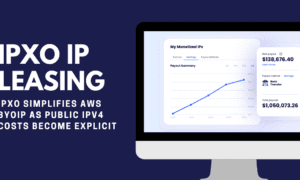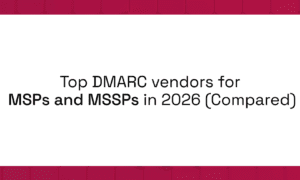Leasing a retail space is a crucial decision that can impact your business’s success for years to come. Whether you’re launching a new store, expanding an existing business, or relocating, securing the right space with favourable lease terms is essential. However, many business owners rush into leasing agreements without fully understanding the financial, legal, and operational implications. For expert guidance on finding the right retail space, visit https://www.austintenantadvisors.com/retail-space/. To ensure you make an informed decision, here are the key factors to consider before signing a lease for a retail space.
- Understanding Your Business Needs
Before starting your search, clearly define your business’s space requirements. Consider the following:
Size & Layout
- How much square footage do you need for your operations?
- Do you require additional storage, office space, or a break room for employees?
- Can the layout accommodate your business model (e.g., open retail space, fitting rooms, checkout area)?
Customer Demographics
- Who is your target audience, and where do they shop?
- What type of shopping experience do they expect (luxury, budget-friendly, convenience-based)?
Business Growth & Flexibility
- Will this space allow for future growth and expansion?
- If your business needs change, can you sublease or renegotiate your lease terms?
- Choosing the Right Location
A retail business’s success often hinges on its location. While a great product or service is essential, being in the right place at the right time can significantly impact foot traffic and sales.
Foot Traffic & Visibility
- Is the location in a high-traffic area with strong pedestrian movement?
- Does it have good street visibility, or is it tucked away in a less noticeable space?
- Are there complementary businesses nearby that attract your target customers?
Accessibility & Parking
- Is the location easily accessible by car, public transportation, and foot?
- Does it offer sufficient parking for customers and employees?
- Are there clear loading and unloading areas if you need regular stock deliveries?
Competition & Neighbouring Businesses
- Is there an oversaturation of businesses offering the same products or services?
- Are there successful retailers nearby that could drive traffic to your store?
- Does the landlord have exclusivity clauses that could prevent direct competitors from moving in?
Neighbourhood Trends & Future Development
- Is the area developing, or is it experiencing a decline?
- Are new businesses, offices, or residential buildings being planned nearby that could impact traffic?
- Are there any zoning laws or restrictions that could affect your business operations?
- Understanding Lease Types & Terms
Retail leases vary in structure, and understanding the different types can help you avoid costly surprises. Common lease types include:
Gross Lease (Full-Service Lease)
- The landlord covers property taxes, insurance, and maintenance costs.
- Rent is typically higher, but there are fewer additional expenses.
Net Lease (NNN or Triple-Net Lease)
- The tenant is responsible for property taxes, insurance, and maintenance.
- While base rent is lower, expenses can fluctuate, leading to unpredictable costs.
Percentage Lease
- The tenant pays a base rent plus a percentage of gross sales.
- Common in shopping malls and high-traffic retail locations.
Modified Gross Lease
- A hybrid between gross and net leases, where the tenant and landlord split costs.
- Costs like utilities, janitorial services, or maintenance may be shared.
Before signing a lease, confirm which type applies to your space and calculate the total estimated costs over the lease term.
- Costs Beyond Rent
Rent is just one part of the financial commitment. There are several additional expenses you should factor into your budget.
Upfront Costs
- Security Deposit: Typically, one to three months’ rent, but may be negotiable.
- First and Last Month’s Rent: Some landlords require these payments upfront.
- Leasehold Improvements: If the space needs modifications or renovations, who pays for them?
Operating Expenses & Hidden Fees
- Common Area Maintenance (CAM) Fees: These cover shared spaces like hallways, lobbies, and restrooms.
- Insurance Requirements: Some landlords require tenants to carry specific types of insurance.
- Utility Costs: Determine whether utilities (electricity, water, HVAC, internet) are included or separate.
- Property Taxes: Understand how property tax increases may affect your rental costs over time.
Marketing & Signage Fees
- Are there restrictions on store signage?
- If you’re leasing in a mall or shopping center, is there a shared marketing budget you must contribute to?
- Lease Duration & Exit Strategies
The length of a lease can range from short-term (one to two years) to long-term (five to ten years). Be sure to consider:
Short-Term vs. Long-Term Leases
- A short-term lease offers flexibility but may come with higher rent.
- A long-term lease locks in your rent but can be risky if your business doesn’t perform well.
Renewal Options & Rent Increases
- Is there a renewal clause that gives you first rights to extend the lease?
- How often does rent increase, and by how much?
- Are there annual escalations or a fixed percentage increase?
Early Termination & Subleasing
- Can you exit the lease early, and what penalties apply?
- Does the lease allow for subleasing if you need to downsize or relocate?
- Legal & Compliance Considerations
Leases are legally binding contracts, so it’s essential to review all terms carefully before signing.
- Permitted Use Clause: Ensures the space is legally zoned for your type of business.
- Exclusive Use Clause: Prevents the landlord from renting nearby space to a direct competitor.
- Maintenance & Repair Responsibilities: Who handles repairs—landlord or tenant?
- Force Majeure Clause: Covers what happens if unforeseen events (natural disasters, pandemics) disrupt operations.
Hiring a Real Estate Attorney
An attorney specializing in commercial real estate can:
- Identify hidden costs or unfavourable lease terms.
- Help negotiate fairer conditions and tenant-friendly clauses.
- Ensure you understand your legal rights and obligations.
- Negotiating the Best Deal
Landlords expect negotiations, so don’t accept the first offer without discussing terms. Consider negotiating:
- Rent-Free Period: Ask for a few months of free rent while setting up your business.
- Tenant Improvement Allowance: The landlord may cover or contribute to renovation costs.
- Reduced Security Deposit: A lower deposit can free up cash for other business needs.
- Cap on Annual Rent Increases: Prevents rent from rising unpredictably.
Leasing a retail space is a major financial and operational commitment. Take the time to thoroughly assess your business needs, research potential locations, and understand the lease terms before making a decision. Seeking professional guidance from a real estate broker or attorney can help you secure a lease that supports your business’s long-term success.
By carefully evaluating these factors and negotiating favourable terms, you can secure a retail space that enhances your brand presence, attracts customers, and sets your business up for growth.




































